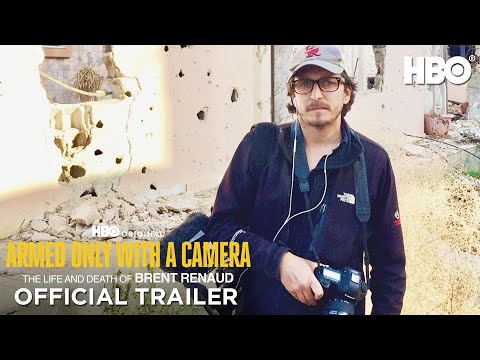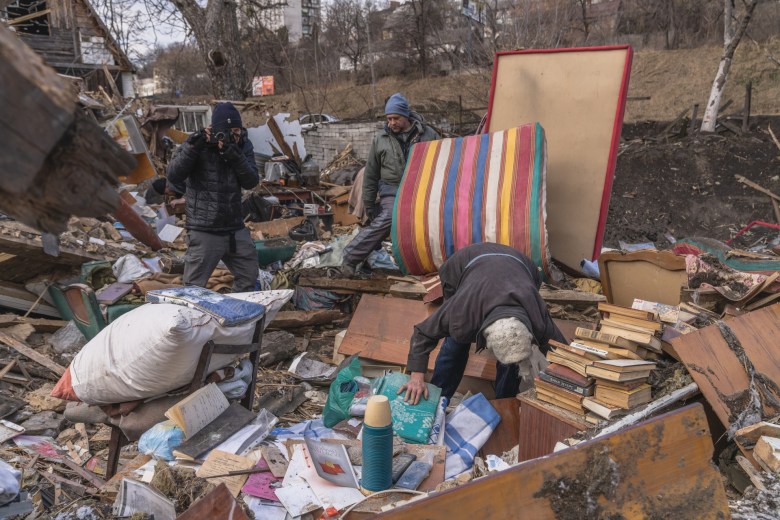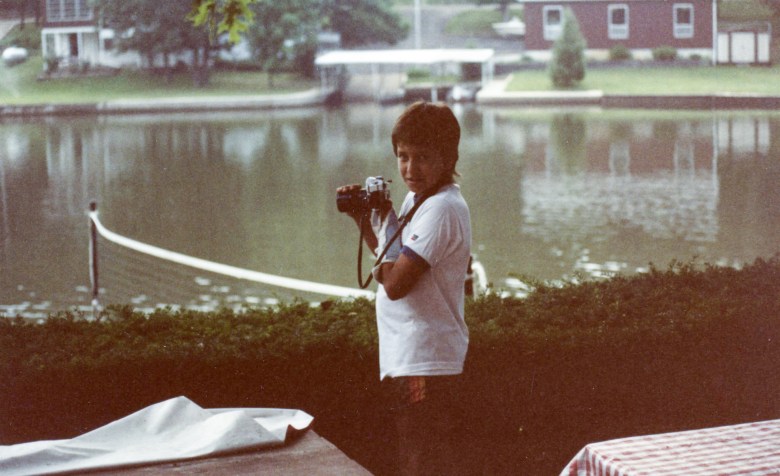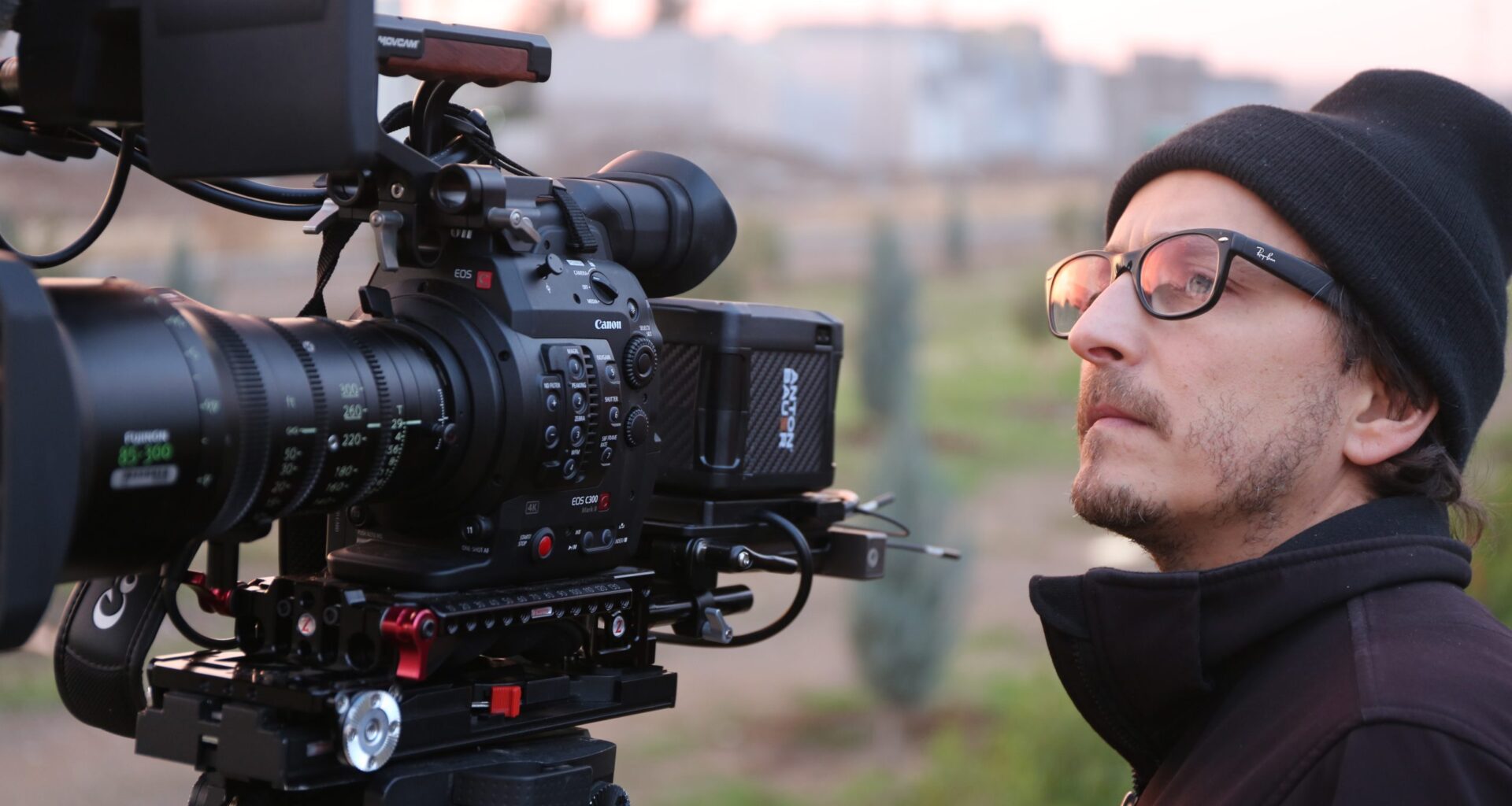Brent Renaud, of Little Rock, was 50 years old and among the most respected American documentary filmmakers of his generation when he was shot and killed by Russian soldiers while on assignment covering the invasion of Ukraine in March 2022.
He was the first foreign journalist to die in that conflict, and his death constituted an international incident. Ukrainian President Volodymyr Zelenskyy and the Pentagon issued statements praising Renaud’s heroism. As so often happens when a journalist dies in a war zone, silence followed mourning. The work that Renaud had let speak for himself was left undone.
More than three years after his death, Renaud once again shares a director credit with his younger brother and primary collaborator, Craig Renaud. Their new documentary release, “Armed Only With a Camera: The Life and Death of Brent Renaud,” premieres tonight on HBO. At less than 40 minutes, the vérité short film laces Brent’s murder and his body’s journey back to Arkansas with moments from his inimitable documentary work over the previous 20 years.

The film is unflinching, beautiful and just utterly wrenching. There are only two ways to watch it: by yourself, or among people you don’t mind watching you sob.
“I know this is what Brent would be doing,” Craig says early in the film as he photographs his brother’s body, waxen and broken, lying in a casket in Ukraine. “Brent has always felt it was important not to hide from the reality of what violence and war does to people.”
Throughout the film, Craig looks absolutely a wreck any time he doesn’t have a camera in his hands, like when he describes the moment he knew Brent was gone: a phone call with their colleague Juan Arredondo, who was shot and injured in the attack that killed Brent, and who paused tellingly when Craig asked whether Brent was shot in the vest or the face. Craig sees Juan in the hospital, recovering, and the men try to console one another. It’s achingly sad. A single teardrop quivers at the end of Craig’s nose as he leans down to hug his wounded friend.
This is what war does. It steals people. And those who are left behind feel they have lost everything.
 Brent Renaud in Ukraine Credit: HBO
Brent Renaud in Ukraine Credit: HBO
Brent spent his career finding and interviewing people who had lost it all. The first shot of “Armed Only With a Camera” shows him on the southern border of Mexico, boots and jeans slung around his neck, wading through a river with child migrants too broke to afford the primitive ferry across the water. Later, he finds a mother in Iraq showing baby pictures of her slain son and weeping into the stiff, shredded fabric of his bullet-riddled jeans. He finds men in Chicago doing their best to raise boys amid an avalanche of neighborhood shootings. He finds children in Honduras among the birds and dogs scavenging dumps for recyclables, and hiding out from gangs they are certain will kill them. He finds families mourning amputations — a hand, a penis — of children struck by coalition fire in Afghanistan. He finds children in post-earthquake Haiti missing limbs and missing parents and famished to tears.
In Somalia, he finds men savaged by an enormous car bomb recovering in a chaotic, fly-strewn hospital. One of them, a man with fresh red-and-pink burns lacing his dark skin, waves him over to answer his questions. But the man soon turns the questions back on the filmmaker.
“What is your name?” the man asks as Brent films him bedside.
“Brent.”
“Can I ask you something? You’re very honest and very faithful. The way you hold that camera — the way you hold that camera, it is not just you’re holding it, you’re doing it from your heart.”
“I am, man. I am.”
“It really means a lot, dawg. You know what I mean? We can change this world, dawg. You and I can change this world if we wanted to. Believe that.”
You could watch a lot of documentary film without ever seeing a higher compliment paid. The Renaud brothers won the top prizes in their field — two duPont-Columbia Awards, a Peabody Award — but this unlikely interaction, captured on camera, feels truer to the hope and goals of their work than any banquet hardware.
 Brent Renaud Credit: HBO
Brent Renaud Credit: HBO
Particularly for someone in such pain and fear to genuinely see Brent offers a bittersweet taste of hope in this documentary. Brent Renaud was, by his admission in the film, an awkward boy who had trouble making friends. Old home movies show him and Craig enjoying the finest of Arkansas summertimes together, riding horses and leaping off docks into dark lake water, but he remembers a lot of alone time with their parents working. From the time he was 10, he was fascinated with cameras, and soon, with the potential of TV.
He always processed the world differently from most. He found cocktail parties unendurable, yet kept a cool head and a steady heart rate when surrounded by exploding bombs and whizzing bullets. At 5-foot-6 and 140 pounds, he commanded the spaces he entered with something more akin to aura than with physicality. “Small guy,” a friend from his Chicago reporting said at his eulogy. “He was like a dove that came in a room. But his presence was of an elephant.”
As you see Brent’s subjects experiencing their lowest moments — with their children dead, or with hands missing, or with their homes bombed to splinters, or with thousands of miles to cover on foot — you wonder how, exactly, he got them to open up. Brent was visiting crime scenes, and the people there spoke in hopes that he could be part of righting a wrong. No one else was arriving to put anything back together. The job fell to this reedy, beguiling cameraman, perhaps speaking Spanish with a twang, to ask what happened. And over and over, people want to talk. Stripped of their homes and their loved ones and their limbs, with only their story left, they look to him as a glint of hope. They were witnesses to crimes. Without him, those crimes would go unreported.
“Armed Only With a Camera” ends with a dedication to Brent and to “the many journalists who gave their lives in pursuit of truth and peace.” Since his murder, hundreds of other journalists have died in conflict zones around the world — Israel alone has killed nearly 300 journalists during that stretch, nearly all of them Palestinians. You may not know anyone who kills journalists, but you probably know people who joke about killing them, perhaps even leaders who describe journalists as enemies of the people. Those people, if not would-be tyrants, are at least fools. With no journalists, silence follows crimes. With no witnesses, those who would do violence to you will get away with it.

